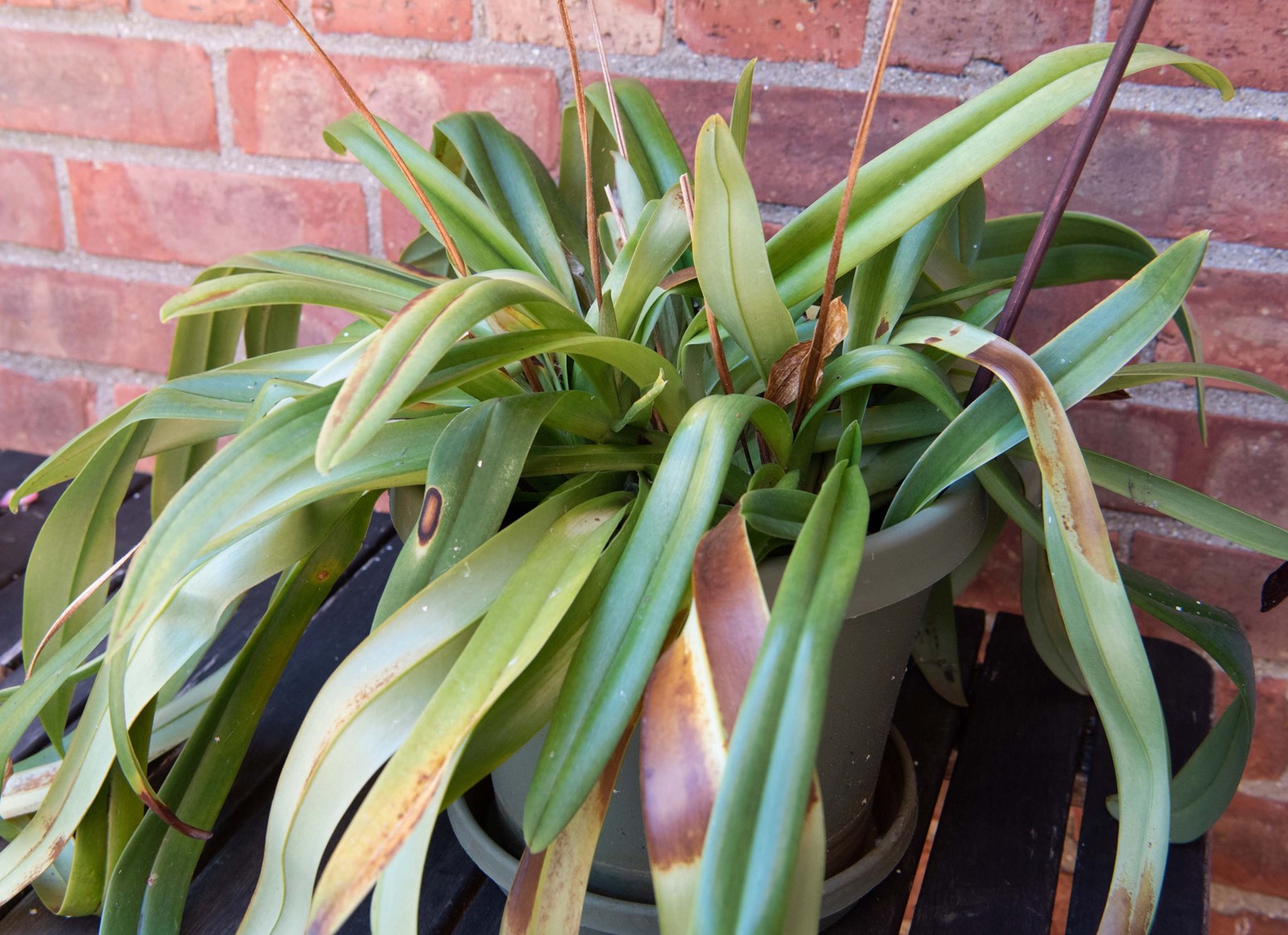
“I put my orchid out too early this spring and forgot to bring it in during the cold weather spells. Will it recover?”
— Robin Carlson, Evanston
I do not see any need to worry about your orchid. The plant seems to be on its way to recovery after a dose of cold weather earlier this spring. Go ahead and snip off the leaves that are mostly dead and finish deadheading the plant, if you have not already done so.
Orchids require bright light (but no direct sun) to thrive and bloom, so go ahead and grow it outside for the summer. Too much light will burn the foliage, and too little light will result in little growth or no blooms.
Place it in the shade of a tree or patio arbor and bring it back indoors when temperatures drop below 50 degrees Fahrenheit. It would be a good idea to bring it in on the occasional late summer evening that drops below 50 degrees, and then bring it back out again when warmer evenings return. East- and north-facing windows should work well when growing the plant inside.
Water your orchid early in the morning, with rain or distilled water as the mix approaches dryness. It is best not to use water softened by a water softener. Watering once every four to seven days should generally suffice unless there is an extended hot spell or very windy weather, which will dry the plant out more quickly.
The orchid should never stand in water, nor should it dry out completely. Feed the orchid with a dilute, water-soluble fertilizer each time you water during the growing season. In the winter months, use a dilute fertilizer every third watering.
The potting medium will break down over the course of about a year, so go ahead and repot the orchid if needed. Purchase an orchid bark mix that will allow the roots to breathe, as most orchids are epiphytes.
In nature, orchids get their moisture from rain, dew and humidity; and their nutrition from decaying leaves and other debris that accumulates among their roots. Growing orchids in a bark mix and fertilizing mimics this cycle in the home environment.
For more plant advice, contact the Plant Information Service at the Chicago Botanic Garden at plant info@chicagobotanic.org. Tim Johnson is senior director of horticulture at the Chicago Botanic Garden.


 PREVIOUS ARTICLE
PREVIOUS ARTICLE
